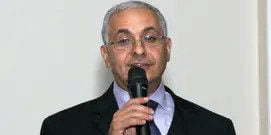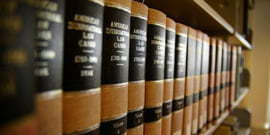
Florida lawyers may not use images or voices of celebrities in their advertisements because under Bar Rule 4-7.15(c) celebrity endorsements are considered manipulative or intrusive.
But what if a lawyer were to use a movie or TV clip not as an endorsement but as an educational tool in a YouTube video to demonstrate the difference between real life and the cinematic portrayal of legal practice?
The Standing Committee on Advertising grappled with that question on August 18 before deciding the inquiring lawyer would not be benefitting from the star power of Matt Damon and Danny DeVito by showing and then discussing part of their movie, “The Rainmaker.” The committee also addressed a question from another lawyer who asked if he could be endorsed by a non-lawyer on that non-lawyer’s YouTube channel as well as several other matters.
On the issue involving “The Rainmaker,” the lawyer plans a series of YouTube videos where he watches movie and TV depictions of lawyers and legal proceedings and then discusses how that compares to real life. In the clip submitted for Bar review, Damon and DeVito, playing lawyers, visit a hospital room to solicit a client. Ethics and Advertising Counsel Elizabeth Tarbert said the inquiring lawyer planned to explain how such direct solicitation is not allowed in Florida.
The difficulty for the inquirer is that Bar rules prohibit any use of celebrity images or voices in lawyer ads.
Bar staff, Tarbert said, split with a majority saying the proposed video violates the letter of the Bar rule, while a minority felt it did not violate the spirit of the rule.
“The purpose of the rule is to prohibit a lawyer from being hired because of a celebrity endorsement,” Tarbert said. “There is no such endorsement, implied or outright [in the video].”
The committee agreed, voting 8-0 to advise the lawyer his proposed video, one of a planned series, is permissible.
The committee, however, rejected the other request related to YouTube. In that instance, a lawyer wanted to do a paid promotion on a YouTube channel operated by a non-lawyer, and which would include the channel host recommending the attorney’s services.
The promotion raised three questions, Tarbert said. One is whether the YouTube channel host would be considered a celebrity under Bar rules. The second is even if the host is a celebrity whether he could do a live read of the lawyer’s ad, like what radio announcers and disc jockeys do — as long as those announcers do not endorse the lawyer or law firm’s services. The third issue was whether language of the promotion, which has the channel host saying “I would recommend checking out” the sponsoring law firm for veterans-related legal services, is an endorsement.
Bar staff unanimously said the language constituted a prohibited paid endorsement and that the host should be treated like a radio announcer when it comes to reading ads, but split on whether the YouTube host, who has 25,000 subscribers, is a celebrity.
Committee member Shannon Schott noted the channel is devoted to the host’s experiences getting services from the Veterans Administration, which attracts a specific audience.
The committee voted 8-1 to find the host is a celebrity under Bar rules, that he can read an ad for the lawyer similar to a radio announcer, but that the proposed ad submitted to the Bar is a prohibited compensated endorsement by a person without direct experience with the firm.
On other matters, the committee voted:
• That a proposed radio ad in the form of a song that recounted, in the first person, the “singer’s” problems with the workers’ compensation system until he called the sponsoring law firm is a prohibited paid testimonial from an actor or performer who does not have actual experience with the firm.
• That a law firm could not continue to use the name of a former partner — who had left the firm and had his name removed from the firm name and letterhead — as part of firm email addresses. Committee member Joe Towne said using the departed lawyer’s name on email addresses as well as the firm’s website address would imply he was still with the firm.
• That a lawyer who had been selected as one of Florida Trend’s Legal Elite could not say on a billboard that he was “Voted Top Lawyer” because it is not the actual name of the award. The billboard did include “Florida Trend’s Florida Legal Elite” in smaller type
Gary Blankenship, Florida Bar News (2021, August 20) https://www.floridabar.org/the-florida-bar-news/committee-addresses-youtube-lawyer-ad-issues
![Florida Lawyers Network - [FLN]](https://floridalawyersnetwork.com/wp-content/uploads/2021/02/FLN_logo.jpg)










